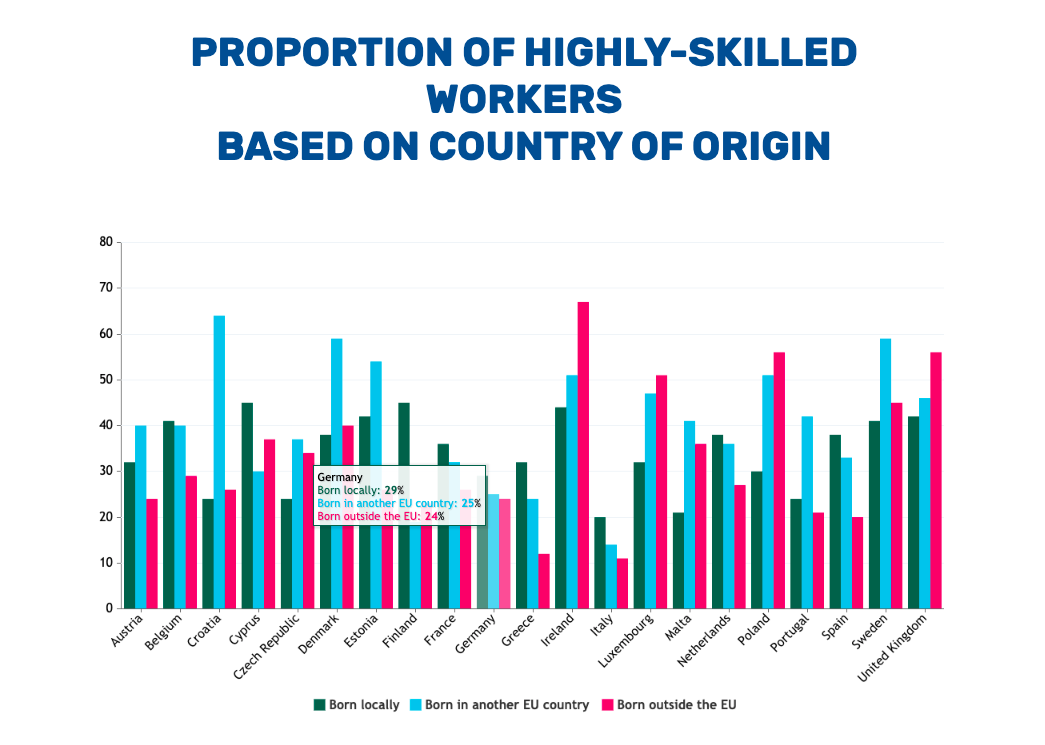Germany has the largest economy in Europe and fourth largest in the world with thousands of jobs for foreigners with specialised skills. Germany is a pioneer in technology with German companies such as BMW, SAP, Siemens, Bosh, Audi, Mercedes-Benz, Volkswagen and more dominating global market share in the industry. More than 90% German companies are SMEs and more than half of them supporting the technology sector and accounts for two thirds of jobs in the economy faces the same workforce crisis in skilled jobs. With so much technology and innovation in Germany’s lap, one will think, how many Germans are working in technology or to be fair how many people who are German born work in technology? Only 29% German born are part of skilled working force.
Skilled working force is the group that comes with a licence or university degree such as engineers, doctors, IT professionals or analysts. Germany, which is known for its liberal immigration laws, has 49% international workers in highly skilled areas. With only a third of the skilled workers in the category are born in Germany. The dependency to sustain the economic growth is levied upon foreign-born skilled migrants.
Germany has more than 2 million vacancies in highly skilled jobs and international recruitment is at the peak. Economist Herbert Brücker says Germany depends on immigrants. By 2060, the country will need these migrants to stay competitive — and he believes they will contribute to a more diverse and successful society.

Source: Accurity
Many hard to find tech talents in fields like artificial intelligence, and data engineering are outsourced by companies in the hands of professional recruiters such as Agile Search. The job is finding the experienced candidate globally with right attitude who can contribute to the employer in the respective field immediately that was hard to attain in the local market. This is called ‘international recruitment’. Searching for talent globally and hiring them comes with plenty of benefits like diversity at workplace, wider talent pool to look at, build the company brand, explore new markets and most importantly decrease your cost per hire.
On the other side, candidates globally are interested in moving to Germany because of better work environment, growth, compensation and overall lifestyle improvement for the family. With both candidates and employers mutually benefiting from the process, international recruitment is booming both in popularity and demand.

To know more about our international recruitment process, you can always consult our tech recruitment adviser about talent acquisition tailored to your needs.
Read More: Recruiting our way through workforce crisis in Europe